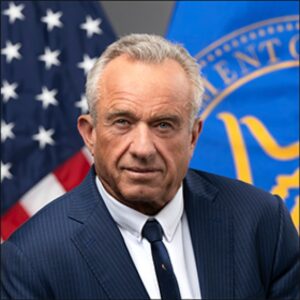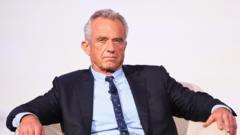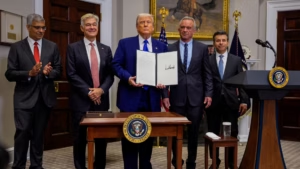As RFK Jr. prepares to push for a TV ban on pharmaceutical ads, experts warn of potential media upheaval and a shift towards authentic investigative reporting on the pharmaceutical industry.
RFK Jr. Proposes Nationwide Ban on Pharmaceutical Ads, Sparking Media Transformation Debate

RFK Jr. Proposes Nationwide Ban on Pharmaceutical Ads, Sparking Media Transformation Debate
HHS Secretary Robert F. Kennedy Jr. is set to introduce a significant ban on pharmaceutical advertisements on television, a move that could reshape media dynamics in the U.S.
According to multiple reports, HHS Secretary Robert F. Kennedy Jr. is preparing to introduce a nationwide ban on pharmaceutical advertisements on television—a bold initiative that some critics warn could bring about a fundamental transformation in American media. RFK Jr. has consistently voiced concerns about the overwhelming influence of Big Pharma on both public health and the media landscape. If his proposal gains traction, it could align the U.S. with many countries that prohibit direct-to-consumer pharmaceutical advertising.
Political analyst Liz Wheeler has articulated two major implications that would likely follow this ban. Firstly, she argues that corporate media stands to suffer significantly. Wheeler describes mainstream media as a “fake business,” contending it’s largely buoyed by pharmaceutical advertising dollars rather than genuine viewer interest and returns on investment. She claims that these lucrative ad purchases are not merely for promoting products but also serve to stifle critical reporting that could undermine the pharmaceutical sector. A drastic cut in this advertising revenue could result in extensive layoffs, firings of prominent news anchors, and even the complete closure of certain networks.
Secondly, Wheeler posits that the media might finally present a more accurate portrayal of the pharmaceutical landscape. With the substantial flow of advertising dollars curtailed, she suggests we could witness an increase in real investigative journalism that delves into issues like pharmaceutical misconduct, vaccine safety, and the collaborations among significant medical organizations and regulatory bodies like the CDC, FDA, and AMA. “It was a money laundering scheme all along to keep reporters silent about the abuses coming out of pharma,” she asserted.
If RFK Jr.'s initiative comes to fruition, it could unveil the closely-knit relationship between the pharmaceutical industry and corporate media, potentially ushering in a new era of transparency and accountability in reporting that has long been needed.






















